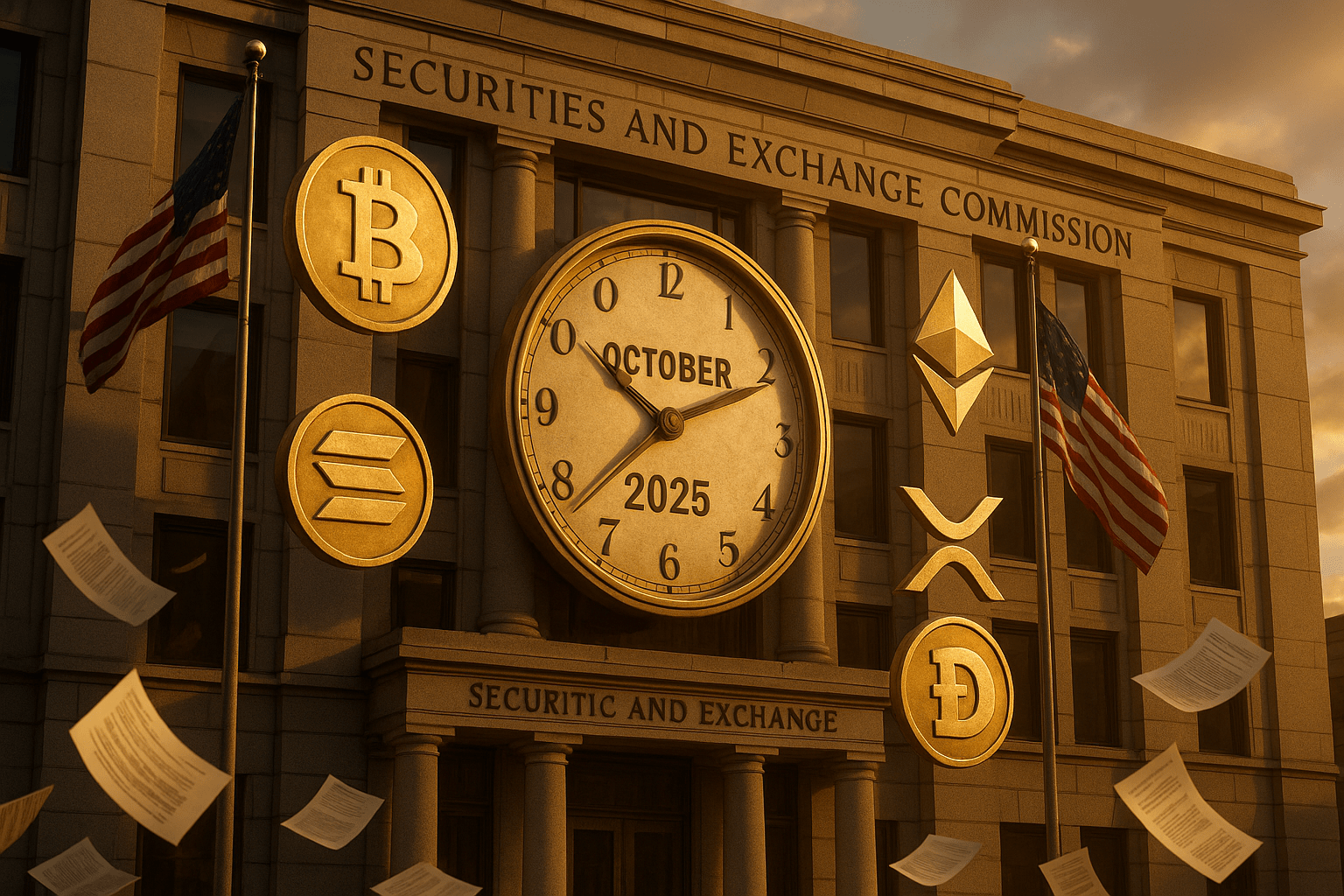
The U.S. Securities and Exchange Commission once again showcased the essence of its art of delay, uniformly postponing the approval decisions for several cryptocurrency ETFs, including the Truth Social Bitcoin and Ethereum ETFs, to October. This time, it involves not only Trump-related products but also the long-awaited Solana, XRP, Litecoin, and Dogecoin ETFs, with well-known institutions like 21Shares, Bitwise, and Grayscale all caught in the crossfire.
The most notable is that the Truth Social ETF has been postponed to October 8, a product associated with the Trump Media Group that has been controversial from the start. Democratic lawmakers have directly fired back, accusing Trump of 'rewriting the rules and then cashing in', and this politically charged accusation makes the SEC's decision even trickier. In the current politically polarized environment, any decision may be interpreted as favoring one side.
The ETF applications for Solana and XRP also encountered a setback. In particular, all five applications submitted by different institutions for XRP were delayed, exposing the SEC's cautious attitude with this one-size-fits-all approach. The XRP price fell in response, struggling around $3. The disappointment among investors is understandable, as they have been waiting for too long, and the SEC always seems to find new reasons to extend this wait.
From a regulatory perspective, the SEC's concerns are not without merit. Compared to Bitcoin and Ethereum, these altcoins do indeed have gaps in market maturity, liquidity, and price stability. But the problem is, if we always wait for the perfect moment, innovation may have already shifted to other more friendly jurisdictions. This excessive caution could be stifling the United States' competitive edge in the cryptocurrency space.
The market has grown accustomed to these delays, but patience is always limited. Each delay erodes investor confidence and drives capital overseas. Places like Singapore, Dubai, and Hong Kong are attracting crypto companies and capital with a more open stance. If the SEC continues this delay tactic, the U.S. may lose its leadership position in the digital asset era.
October will be a critical moment. If the SEC continues to reject or delay, it may trigger a strong rebound in the market. But if multiple ETFs are suddenly approved, the market could experience explosive growth. This uncertainty itself is the biggest risk, preventing investors from formulating long-term strategies and keeping the market in a constant state of anxiety. In this game of regulation versus innovation, the ultimate loser may be the entire U.S. financial market.




